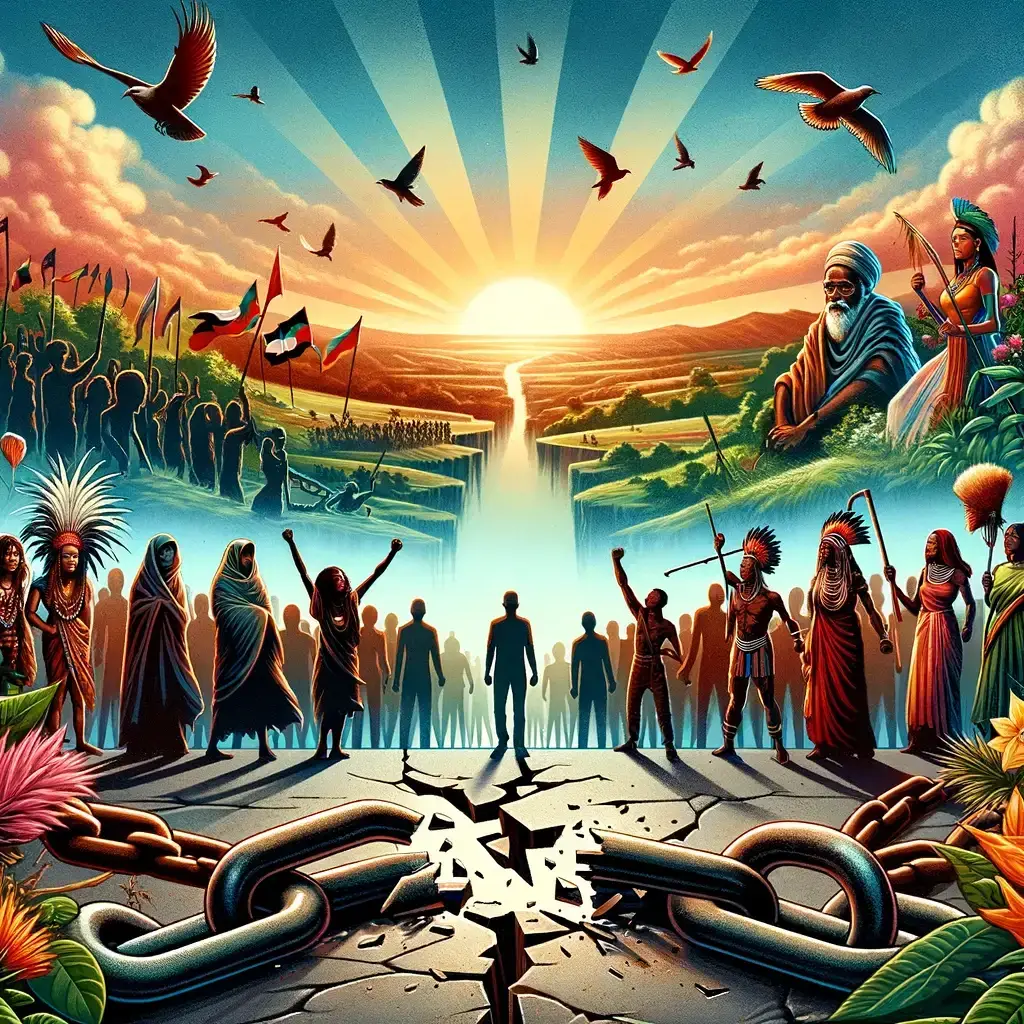Decolonization
What is Decolonization?
Decolonization is the process by which colonies gained independence from their colonial rulers, particularly after World War II. This movement led to the end of European empires in Africa, Asia, and the Americas, as countries sought self-governance and freedom from foreign control.
The Era of Decolonization
Decolonization began after World War II when many countries under colonial rule fought for independence. Colonies in Asia, Africa, and the Caribbean sought freedom from European empires. The process was often peaceful but sometimes involved violent struggles. Countries like India and Ghana became symbols of successful independence movements. Decolonization marked a major shift in world history, reshaping borders and governments.
The End of Colonial Empires
By the mid-20th century, colonial empires started to collapse. Economic troubles after World War II made it harder for European countries to control faraway colonies. At the same time, colonized people demanded self-rule and equal rights. Nations like Britain and France began to grant independence to their colonies. This change created many new countries and ended centuries of European domination.
Leaders of Independence Movements
Decolonization was led by courageous figures who inspired their people to fight for freedom. In India, Mahatma Gandhi used nonviolent protests to challenge British rule. In Kenya, Jomo Kenyatta organized movements to gain independence from Britain. Leaders like Kwame Nkrumah in Ghana and Ho Chi Minh in Vietnam also played key roles. These individuals became symbols of resistance and hope for their nations.
The Role of the United Nations
The United Nations supported decolonization efforts around the world. It promoted self-determination, the idea that people should choose their own government. Many newly independent countries joined the UN, strengthening its mission. The organization helped mediate conflicts and provided support to emerging nations. Its role made decolonization more peaceful in some regions.
Independence Movements Across Africa
Decolonization in Africa led to the creation of many new nations. Countries like Algeria, Nigeria, and South Africa fought for independence from European powers. Some movements, like those in Ghana, were peaceful, while others, like Algeria’s struggle against France, involved war. The process united Africans in their fight against colonialism, but it also created challenges like political instability.
The Partition of India
India’s decolonization from British rule in 1947 resulted in its partition into two nations: India and Pakistan. This split was based on religious differences, as Hindus and Muslims sought separate countries. Millions of people moved between the two nations, leading to violence and loss of life. Despite the hardships, both nations gained independence and charted their own paths. The partition remains a key moment in world history.
Challenges After Independence
Decolonization brought independence, but it also left challenges. Newly freed nations faced economic struggles and political instability. Colonizers often left without preparing local leaders to govern. Borders drawn by colonial powers caused conflicts among different ethnic groups. Despite these obstacles, many nations worked hard to build strong, independent governments.
Cultural Identity After Colonialism
Decolonization helped countries reclaim their cultural identity. Colonized people revived traditions, languages, and customs that had been suppressed. National pride grew as citizens celebrated their heritage. However, colonial influences, like languages and legal systems, often remained. The blending of old and new cultures created unique identities in post-colonial nations.
Cold War Influence on Decolonization
The Cold War affected the process of decolonization. The United States and the Soviet Union supported independence movements to gain allies. Each superpower offered aid and military support, hoping new nations would join their side. This influence sometimes created tension in newly independent countries. The Cold War shaped how decolonization unfolded in different parts of the world.
